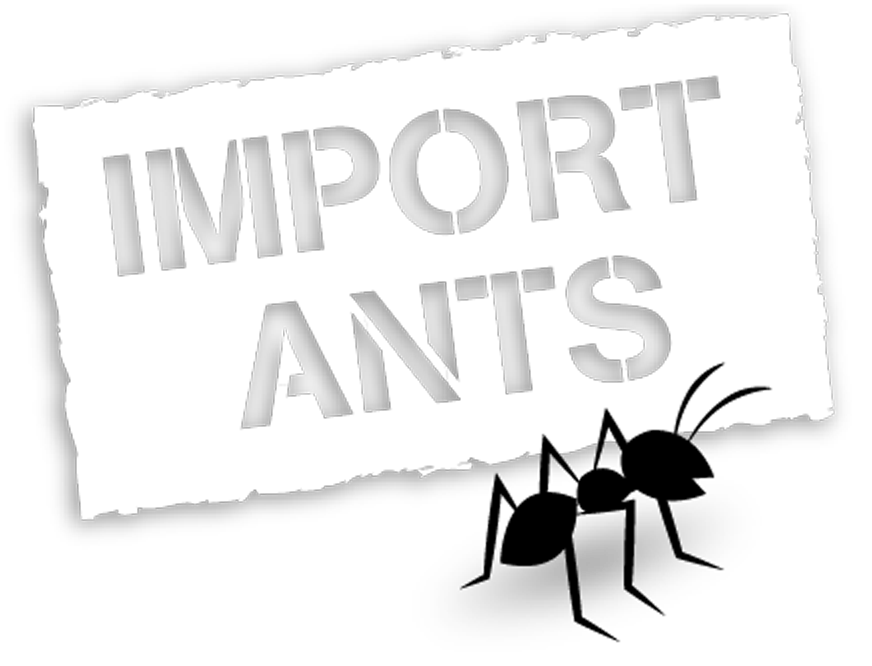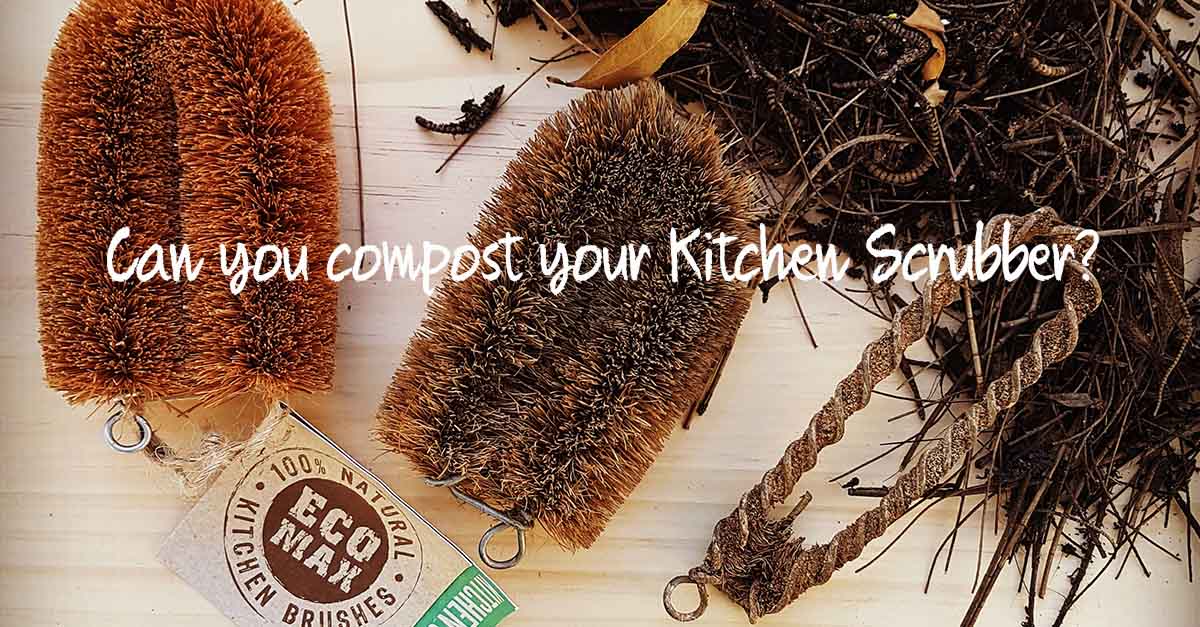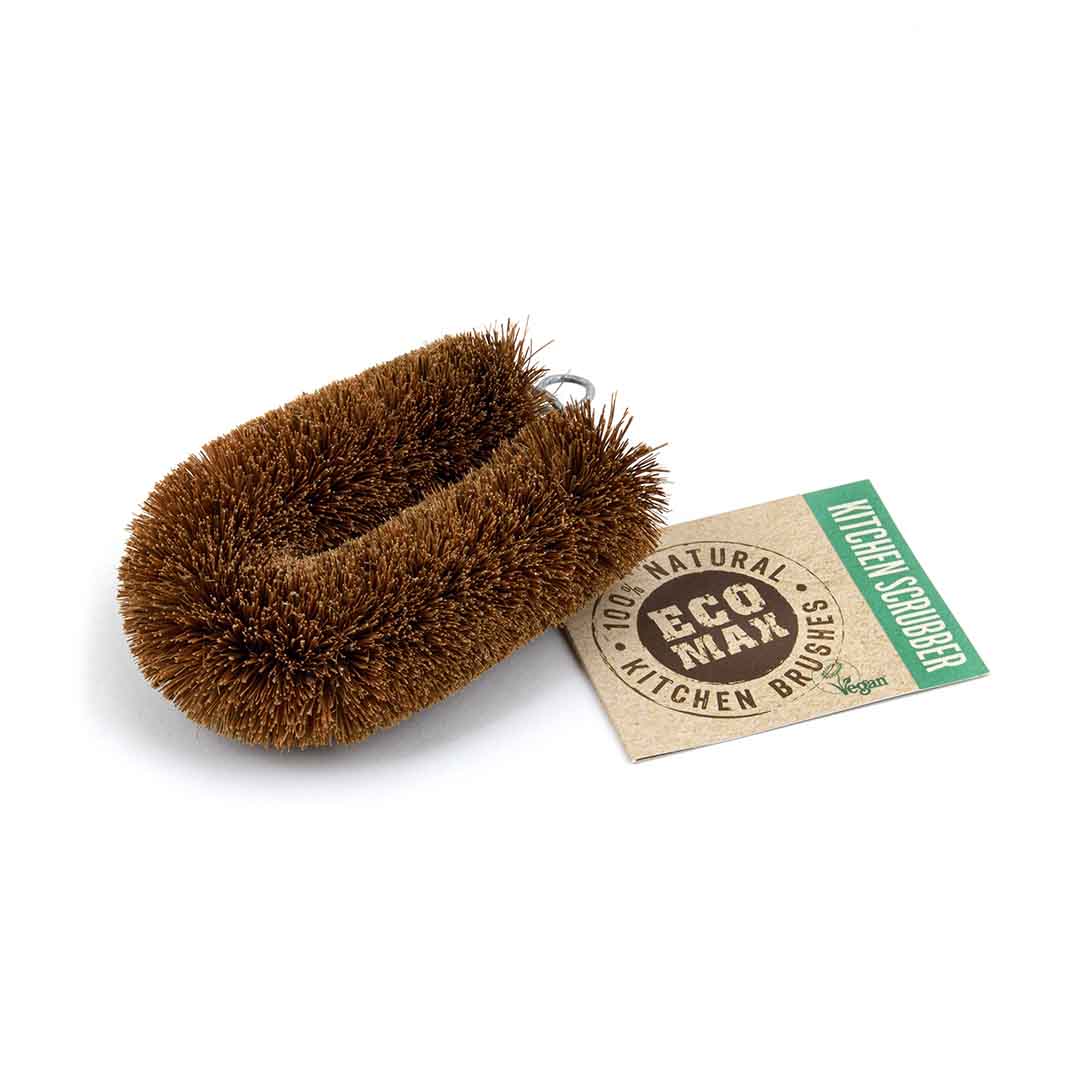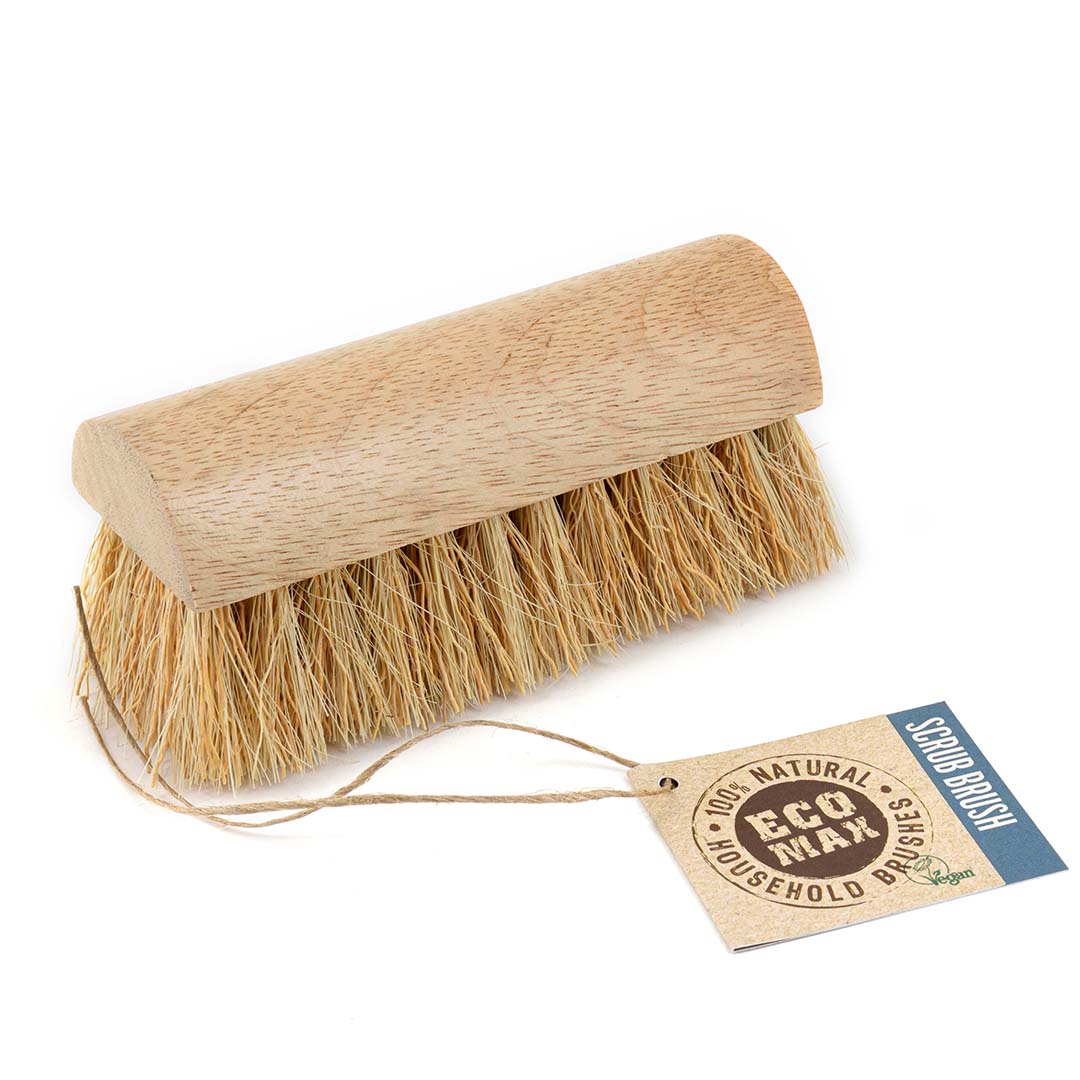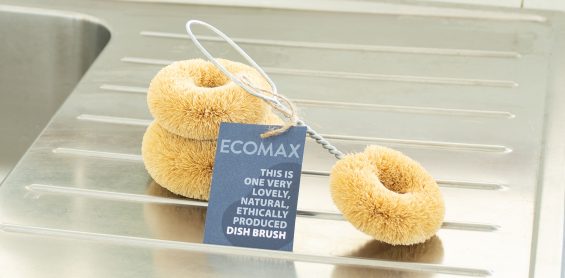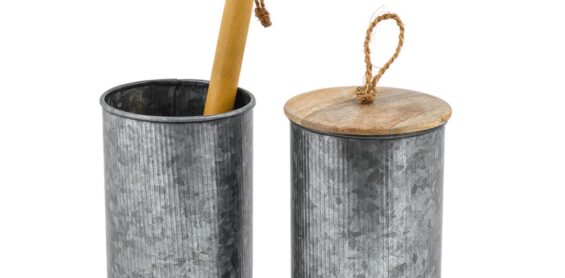How do the scourers we use everyday impact on our health and the health of our environment ?
The simple objects that we use all the time are often over looked. Everyday items like our tooth brushes, plastic bags and kitchen scourers do more damage than you would think and worldwide billions of these items are used and thrown away.
“There is no such thing as thrown away. Things don’t disappear. They are just moved to another place” – Kim Good
There are only a few kitchen scourer options available; metal scourers, nylon scourers and coconut fibre scourers. We look at how these compare for health, sustainability, effectiveness and cost.
The Metal Scourer
These can be made of mild, galvanised or stainless steel and even copper. Metals are made from mined ore. Mining has health and environmental impacts in both the short and long term and then you have the greenhouse gasses and the cost involved in the production.
Interestingly metal scourers are never recommended for use in commercial kitchens because fragments of them break off and can find their way into food. These fragments of metal have sharp edges and the ends are often hook shaped. If swallowed they can lodge in the stomach, small or large intestine and have the potential to perforate the walls causing peritonitis. This is caused by bacterial laden intestinal juices entering the peritoneal space and if left untreated can cause death.
Health – Ignoring the small chance of dying, and considering how well they work on burnt pots and pans, if you take their manufacturing foot print out of the picture there are no other real health implications in using them.
Sustainability – Minerals are not a renewable resource and there are health implications for both us and the planet with mining. Plus as most scourers end up in landfill and the metal is not recycled, they do not easily breakdown.
Effectiveness – Very good at cleaning baked on grime. The problem is they can scratch your good saucepans, including stainless steel. They are not recommended for enamelware, non-stick surfaces or cast iron as they scratch the patina.
Cost – They are inexpensive and cost effective if you don’t look at the hidden costs for the environment and the full life cycle of the product.
The Nylon Scourer
These are made from plastics such as nylon 66 which is a synthetic made from processing crude oil. One of the by-products of this production process is nitrous oxide, a greenhouse gas 300 times more potent than CO2.
Nylon fibres, plastics and the toxicity of chemicals associated with these are being found in increasing quantities in seafood. A scientific report published in Nature Journal showed that fish on sale to the public contained these nylons and concentrations of the chemicals that they are made from. These chemicals are transferred to humans when eaten.
Health – Considering the fact that they may be poisoning us slowly by entering our food chain, that the micro fibres that break off every time we use them are ending up in our oceans and that the bio-products of making them are so poisonous, there is nothing healthy to report on the nylon scourer.
Effectiveness – They do work well for scrubbing pots and pans. They don’t scratch stainless steel but they do scratch enamelware, the patina on cast iron and also non-stick pans. Fat quickly congeals on them making the scourer greasy and yukky and impossible to clean, so you have to throw them out faster.
Sustainability – The worst offender out of all the scourers. As they easily become greasy they don’t last very long in the kitchen and it is frightening how many billions of them end up in land fill each year, taking decades to break down or even worse ending up in our waterways. They are also made from petroleum, which is a non-renewable resource.
Cost – Yes, they are cheap, but at what cost to the environment and your health?
Coconut Fibre Scourer
Made from 100% natural coconut fibre from the husk of the brown coconut, a waste product from the coconut you eat. The Eco Max Kitchen Scrubber is ethically handmade in Sri Lanka and provides sustainable employment for women.
Health – There are no chemicals or bleaches, no plastic fibres to pollute our waterways or poison our seafood. It is biodegradable, sustainable and natural.
Effectiveness – It scrubs all your pots and pans without scratching their surfaces, even on enamelware. It won’t take the patina from cast iron and the fibres get into all those hard to clean areas like the lip on glass storage containers, graters, garlic crushers and mesh strainers.
Coconut fibre is naturally anti-bacterial so it will not become smelly or mouldy, ever. The fibres absorb the fats and oils so they don’t congeal on the surface and are washed out with hot water in your sink. You can even put them in the dishwasher to clean them.
Sustainability – Apart from being completely natural, coconut fibre is a renewable resource that is carbon neutral. It will last 4 months or more in the kitchen and can then be used outside on the BBQ or other cleaning purposes. It is biodegradable and can be added to your compost or it will breakdown in landfill. Any particles that may end up in our oceans are completely natural and won’t harm marine life.
Cost – The Eco Max Kitchen Scrubber is $4.00, slightly more than the other scourers. A minimal cost when you take into account the positive impacts their use has for the health of our planet and that their natural vegetable fibre, chemical free composition has no impact on our health. Their cost effectiveness is even greater when you consider how long they last.
For us at Import Ants we believe that the decisions you make create the world you want to live in. When you investigate the life cycle of your kitchen scourer options, you can clearly see how your decisions can have a much larger impact on you and the planet.
